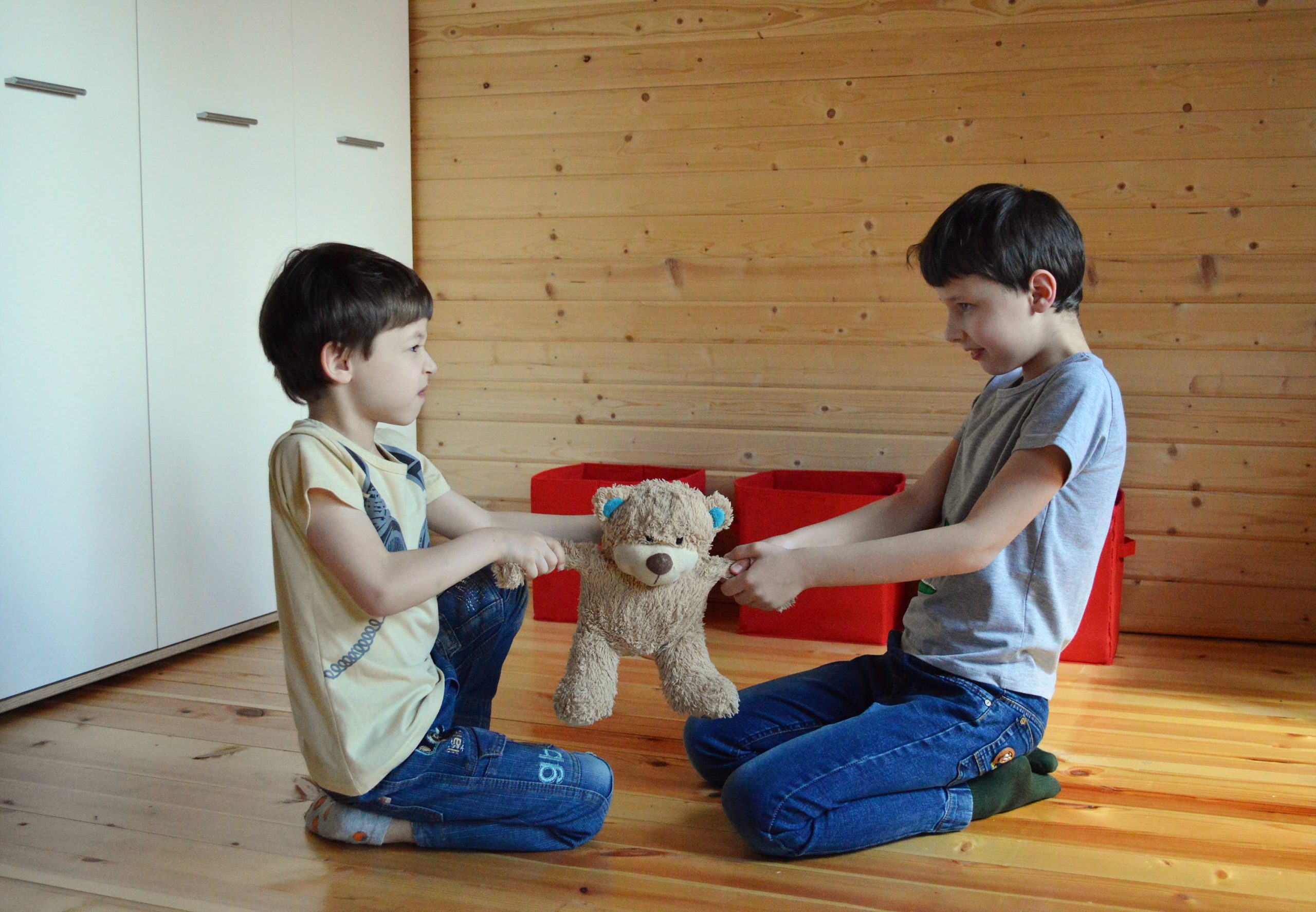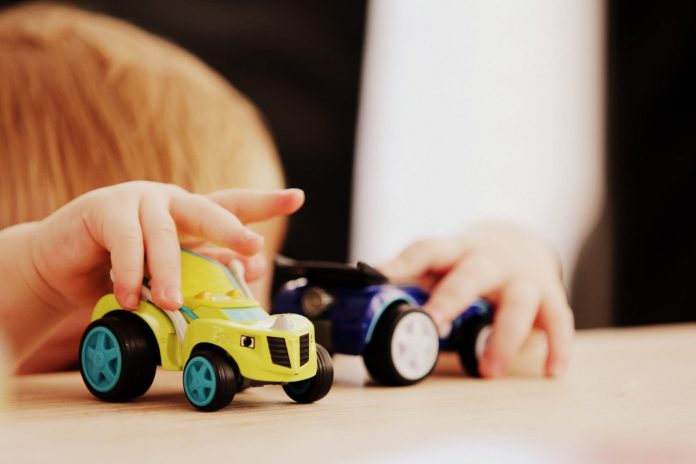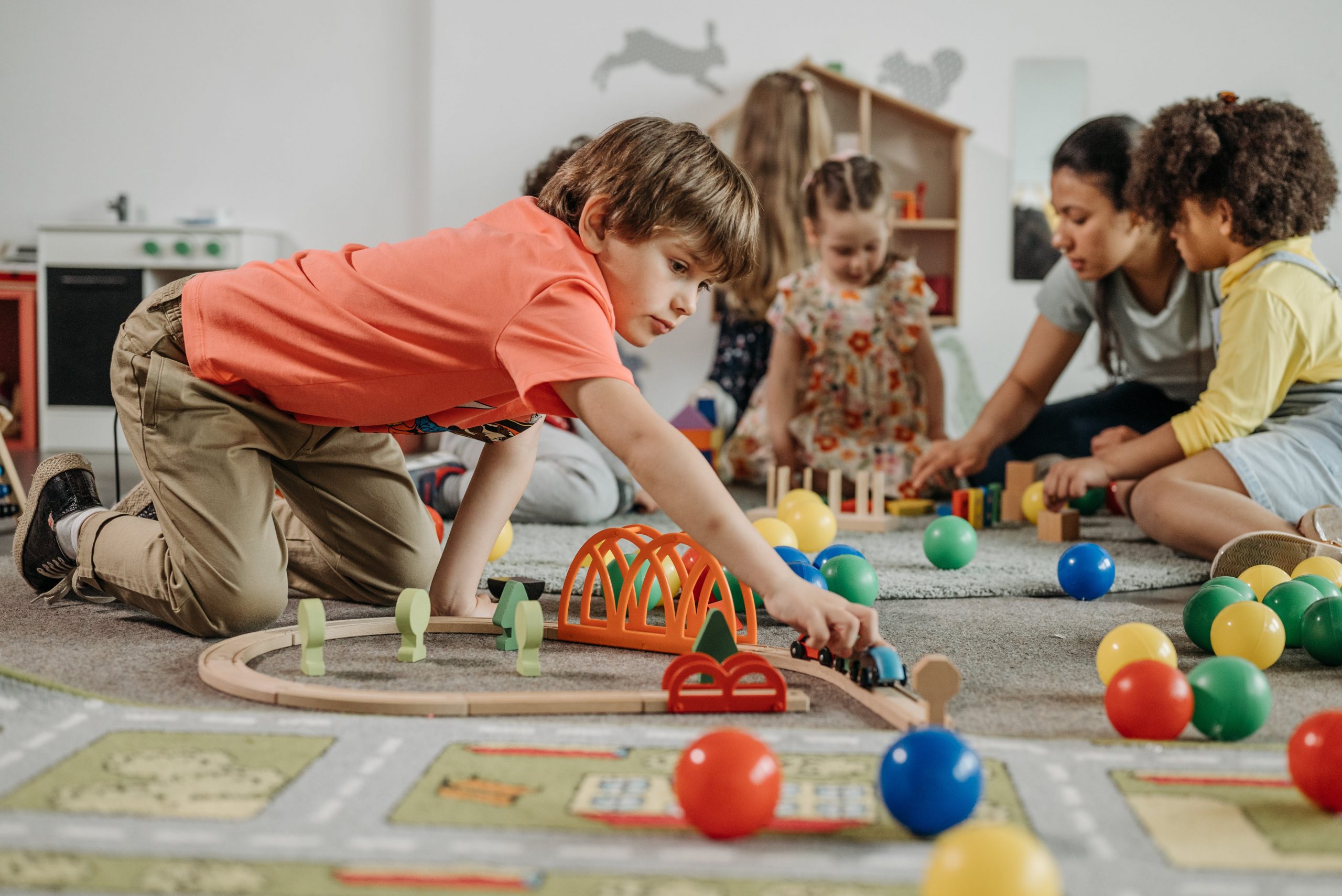As a seasoned content marketer and a coach with years of experience in parenting and relationship dynamics, I’ve encountered numerous challenges that parents face.
One such challenge is managing toddlers who throw toys instead of playing with them. This behavior, while common, can be perplexing and frustrating for parents.
In this comprehensive guide, we’ll explore effective strategies to address this issue, drawing from personal experiences and professional insights.
Understanding the Why: The Psychology Behind Toy-Throwing

Why Do Toddlers Throw Toys?
Before diving into solutions, it’s crucial to understand why toddlers exhibit this behavior. Throwing toys can be a form of exploration, expression, or a developmental milestone. It’s a way for toddlers to learn about their environment, express emotions, and test boundaries.
The Role of Emotional Development
Toddlers are at a stage where they are learning to navigate their emotions. When they throw toys, it might be an expression of frustration, excitement, or a need for attention. Understanding this can help parents approach the situation with empathy and patience.
Strategies for Managing Toy-Throwing Behavior
Establishing Clear Boundaries
Setting clear and consistent boundaries is key. Explain to your toddler that throwing toys is not acceptable behavior. Use simple language and be consistent in your approach. It’s important that they understand the rules and the consequences of breaking them.
Positive Reinforcement and Encouragement
Encouraging positive behavior is more effective than punishing negative behavior. Praise your toddler when they play nicely. This positive reinforcement can motivate them to continue good behavior. For more insights on encouraging positive behavior, check out Words of Encouragement for Kids.
Redirecting Behavior
When your toddler throws a toy, calmly remove it and redirect their attention to another activity. This helps them understand that throwing toys leads to losing them, while also engaging them in a more appropriate activity.
Understanding and Addressing Underlying Issues
Sometimes, toy-throwing can be a symptom of deeper issues. For instance, a lack of attention or unmet emotional needs can manifest in such behaviors. It’s important to be attentive and address these underlying issues. In cases where the behavior is persistent and concerning, it might be a sign of uninvolved parenting, which requires a different approach.
Creating a Positive Play Environment for Toddlers
The Importance of a Conducive Play Space
A well-structured play environment is crucial for a toddler’s development. It should be safe, stimulating, and inviting. This space should encourage exploration and play without overwhelming them. Here’s how you can create such an environment:
Safe and Accessible Play Area
Ensure the play area is free from hazards. Soft mats, secured furniture, and age-appropriate toys are essential. The area should be easily accessible, allowing toddlers to choose and reach their toys independently.
Organized and Clutter-Free
A cluttered space can be overstimulating for toddlers. Organize toys in clearly labeled bins or shelves. This not only makes it easier for toddlers to find what they’re looking for but also teaches them about organization and tidiness.
Engaging Toddlers in Meaningful Play
Variety in Toys and Activities
Offer a variety of toys that cater to different developmental needs – puzzles for problem-solving, blocks for motor skills, and art supplies for creativity. Rotate toys regularly to maintain their interest.
Interactive Playtime
Join your toddler in play. This not only strengthens your bond but also allows you to guide them in how to play appropriately with toys. Show them different ways to use a toy, fostering creativity and imagination.
Scheduled Playtime
Having a routine can be beneficial. Allocate specific times for free play, structured activities, and quiet time. This helps in setting expectations and creating a balanced day for your toddler.
Addressing the Behavior Directly
Consistent and Calm Approach
When addressing the toy-throwing behavior, remain calm and consistent. Avoid showing strong emotional reactions, as this can sometimes encourage the behavior. Instead, use a firm yet gentle tone to convey your message.
Teaching Alternative Ways to Express Emotions
Help your toddler find other ways to express their emotions. If they’re throwing toys out of frustration, teach them to use words, or provide them with a soft toy that they can squeeze. Understanding and addressing their emotional needs is crucial.
The Role of Storytelling and Role-Playing
Using stories and role-playing can be an effective way to teach appropriate behavior. Create scenarios where toy characters demonstrate good play habits. This not only entertains but also educates them about the consequences of their actions.
Consistency in Parenting: Key to Managing Toddler Behavior
The Power of Consistent Parenting
Consistency is the cornerstone of effective parenting, especially when dealing with challenging behaviors like toy-throwing. Consistent responses help toddlers understand expectations and the consequences of their actions.
Establishing Routine and Predictability
A predictable routine gives toddlers a sense of security and stability. Regular meal times, playtimes, and bedtimes create a structured environment where they know what to expect, reducing anxiety and behavioral issues.
Consistent Discipline and Rules
When rules are applied consistently, toddlers learn boundaries more effectively. If throwing toys is not acceptable, this rule should be enforced every time the behavior occurs. Inconsistent discipline can confuse toddlers, leading to more frequent rule-breaking.
The Role of Both Parents
It’s crucial that all caregivers are on the same page. Mixed messages from different caregivers can undermine efforts to manage behavior. Consistent rules and responses from both parents reinforce a clear and unified message.
Understanding and Adapting to Your Child’s Needs

Tailoring Your Approach
Each child is unique, and what works for one may not work for another. Pay attention to how your child responds to different strategies and adapt accordingly. Some children may respond better to verbal cues, while others need more visual or physical guidance.
The Importance of Emotional Intelligence
Being attuned to your child’s emotions is vital. Recognize the feelings behind their behavior and address those emotions. For instance, a child who throws toys out of frustration may need help developing coping strategies for their emotions.
The Impact of Different Parenting Styles
Avoiding Extremes in Parenting
Extremes in parenting, like being overly permissive or overly strict, can exacerbate behavioral issues. For example, permissive parenting often leads to a lack of boundaries, making it harder for children to learn self-control. Striking a balance is key.
Embracing Authoritative Parenting
Authoritative parenting, characterized by warmth, responsiveness, and firmness, is often the most effective. This style supports a child’s autonomy while maintaining clear boundaries, leading to better behavioral outcomes.
Long-Term Implications of Effective Toddler Behavior Management
Shaping Future Behavior and Development
The strategies and approaches parents use to manage toddlers who throw toys have long-term implications on their behavior and overall development.
Building a Foundation for Future Behaviors
The lessons toddlers learn through effective behavior management extend beyond the immediate issue of toy-throwing. They form the foundation for future behaviors, including self-control, respect for rules, and the ability to handle frustration and disappointment.
Fostering Emotional Intelligence and Empathy
By addressing the emotional aspects of behavior, such as teaching toddlers to express their feelings appropriately, parents nurture emotional intelligence. This skill is crucial for developing empathy and understanding others’ perspectives, essential traits for social interactions.
The Role of Parental Modeling
Leading by Example
Children learn a great deal from observing their parents. Displaying patience, calmness, and empathy in your interactions teaches your child to emulate these behaviors. This is particularly important in situations of conflict or frustration.
Consistency in Parental Behavior
Just as consistency in rules and discipline is important, so is consistency in parental behavior. Being a reliable and stable figure in your child’s life reinforces a sense of security and trust.
Beyond Behavior Management: Encouraging Positive Development

Encouraging Curiosity and Exploration
While managing behavior like toy-throwing is important, it’s equally crucial to encourage positive behaviors. Foster your child’s curiosity and exploration, providing opportunities for them to learn and grow in a supportive environment.
The Importance of Play in Development
Play is not just about entertainment; it’s a vital part of a child’s development. Through play, children learn social skills, problem-solving, and creativity. Encouraging varied and constructive play can have significant developmental benefits.
Preparing for Future Challenges
Equipping Children with Coping Skills
The skills and attitudes children develop in response to early behavior management are tools they will use throughout life. Teaching them to handle frustration, follow rules, and express themselves appropriately prepares them for future challenges.
The Role of Parental Support and Guidance
As children grow, the challenges they face will evolve. Continued parental support and guidance are crucial in helping them navigate these challenges successfully.
Conclusion
Effectively managing toddlers who throw toys is about more than stopping unwanted behavior. It’s about guiding them toward positive behaviors, emotional intelligence, and a strong foundation for future development. By employing consistent, empathetic, and balanced parenting strategies, we can help our children grow into well-rounded individuals.
This comprehensive guide has explored various facets of managing toddlers who throw toys, emphasizing the importance of understanding, consistency, and positive reinforcement.
By applying these principles, parents can not only address immediate behavioral issues but also contribute significantly to their child’s overall development and future success.
Creating a positive play environment and engaging in meaningful play are essential steps in managing toddlers who throw toys. By understanding their needs and guiding their behavior, you can foster a more harmonious and enjoyable playtime.
In the next section, we will explore the importance of consistency in parenting and the impact of different parenting styles, such as permissive parenting, on toddler behavior.




